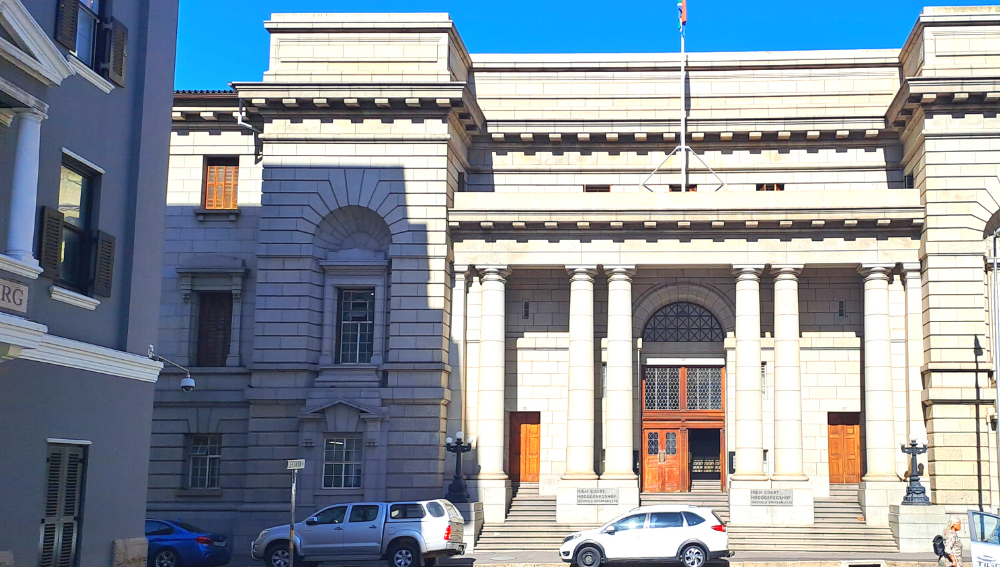The pandemic, backlogs, load-shedding, and failures; the challenges facing SA courts
South Africa’s Chief Justice Raymond Zondo released the Annual Judicial Report 2022/23 on Friday, 24 February 2023. The report is not yet available on the Judiciary’s website. This report highlighted the performance of South Africa’s “superior courts” during the last financial year. Superior courts are courts like the High Court.
However, for the second year running, the report has excluded the key data from the district magistrates’ courts across the country. These “lower courts” are where most arrear levy debt claims and non-paying unit owners are pursued by community schemes (except for most cases of liquidation and sequestration which are dealt with by the High Courts). Due to a systems crash at the Department of Justice and Constitutional Development (“the Department”), the data is missing, and the judiciary relies on the Department to resolve this as soon as possible. Therefore, the report only canvasses the performances of the superior courts, by highlighting some of the causes and effects of poor performance in the various superior courts across the country.
Load-shedding, the pandemic, and a shortage of judges had a detrimental effect on court proceedings, negatively affecting the courts’ performance. While this may be true for the superior courts, there have also been similar difficulties in the lower courts relating to load-shedding and the pandemic, although there have not been notable reports of a shortage of magistrates.
The report also highlighted the impact of the lack of backup power facilities in some superior courts. This issue is exacerbated in the lower courts, which are often found in poorly serviced areas or outlying jurisdictions. The impact of load-shedding on court performances across the country is a cause for concern. Some reports suggest that cases have been postponed for weeks because the relevant stenographer who must record court hearings and trials is unable to switch on the stenographic machinery due to power outages during scheduled hearings or trials. This further exacerbates the backlogs experienced in these courts.
Furthermore, the understanding and appreciation of community scheme arrear levy claims matters by presiding officers and clerks of the courts are, respectfully, in question. The delays caused by these factors put the effective management of community schemes at risk and add undue financial pressure on paying unit owners.
We suggest multi-pronged strategies to address the risk posed to community schemes and for improving the overall performance of levy debt collection in the industry. These include approaches such as providing additional background educational material in court papers. Another possible avenue is to invite presiding officers and other court officials to industry training seminars focusing on the impact of not paying levies in community schemes and the importance of levy debt collection for communities and the economy as a whole.
While load-shedding and the pandemic have had a negative effect on court performances, the biggest issue is ensuring that courts balance the interests of paying and non-paying unit owners and provide value judgments in respect of levy collection issues that adequately protect the paying owners and the community scheme as a whole, not just the debtor. The judiciary is committed to reducing and eliminating backlogs in various courts, including the magistrates’ courts, to ensure that justice is served effectively and efficiently. This is the constitutional mandate of the courts. The issue is not only the backlogs and the load-shedding though, and it is a critical need to increase awareness and education about the plight of the paying unit owners and the affected community schemes suffering from endemic cultures of non-payment of levies, and slow court processes or unjust outcomes.
The Annual Judicial Report 2022/23 highlighted the challenges South Africa’s superior courts faced in the previous financial year. The absence of data from the district magistrate’s courts is a significant concern. The performances of the magistrates’ courts during the pandemic lockdowns, and since the implementation of heavy load-shedding schedules across the country have also not been good.
Our legal team are monitoring the situation and will keep you posted about the latest developments as and when these are reported.
You can read more about this topic on News24 by following this link.






